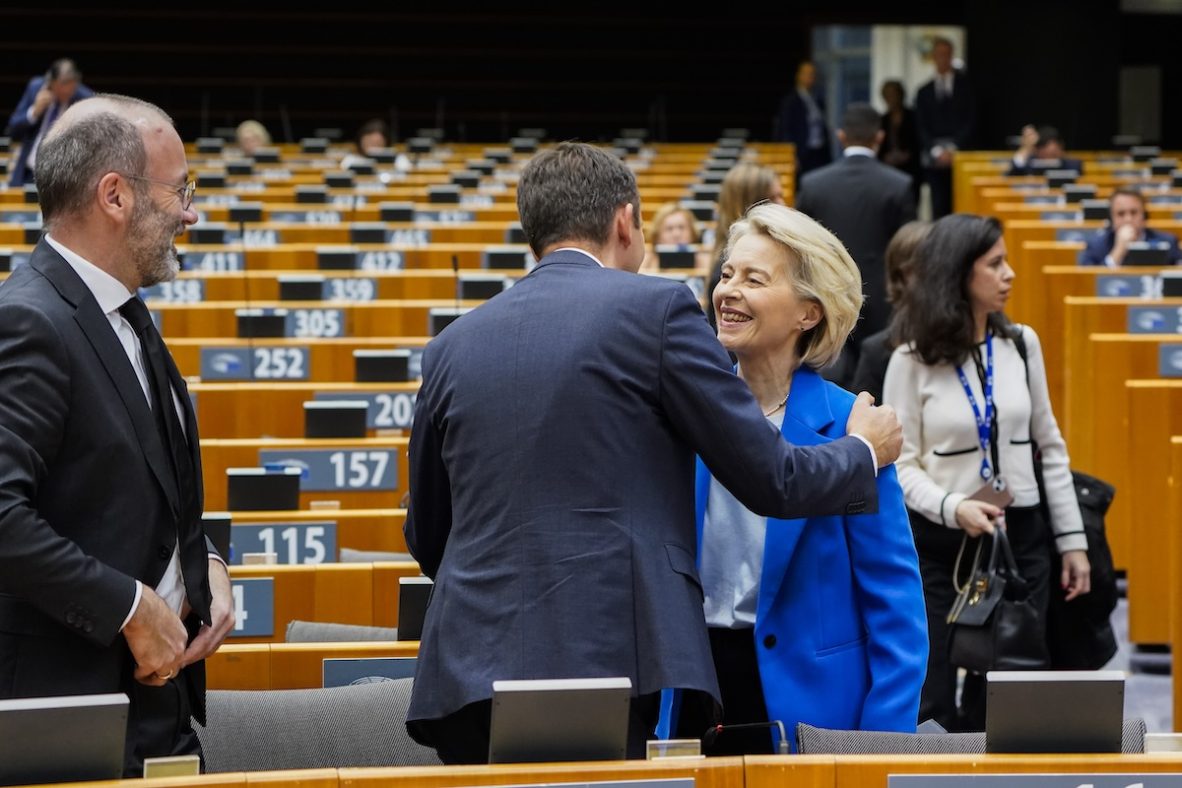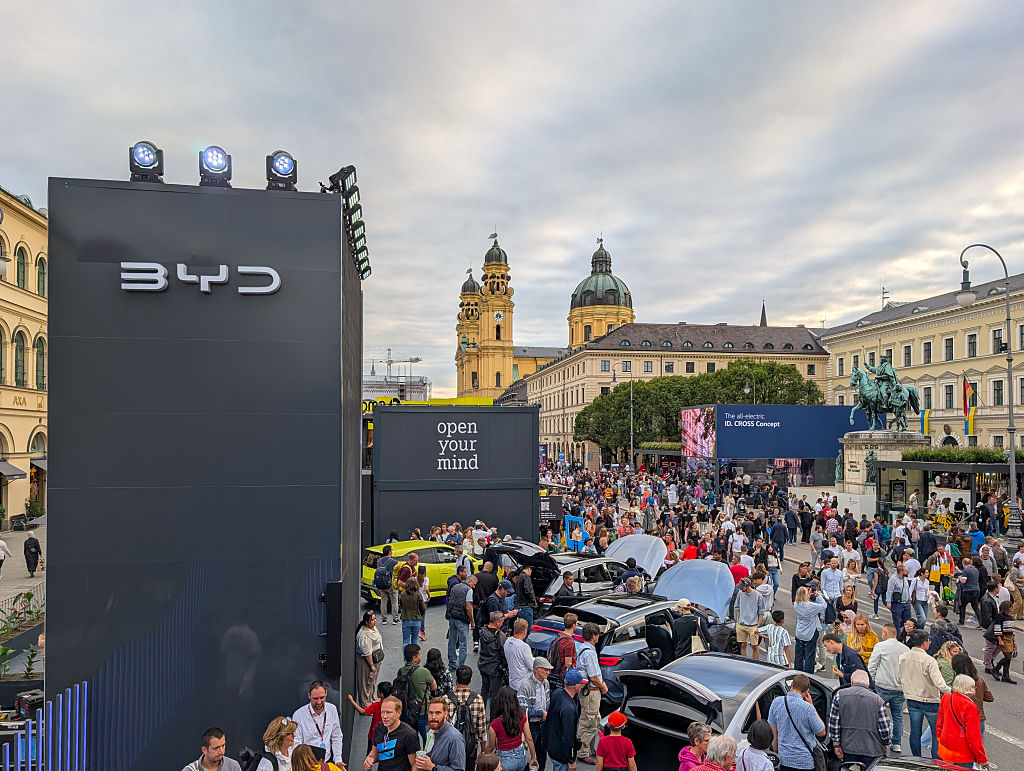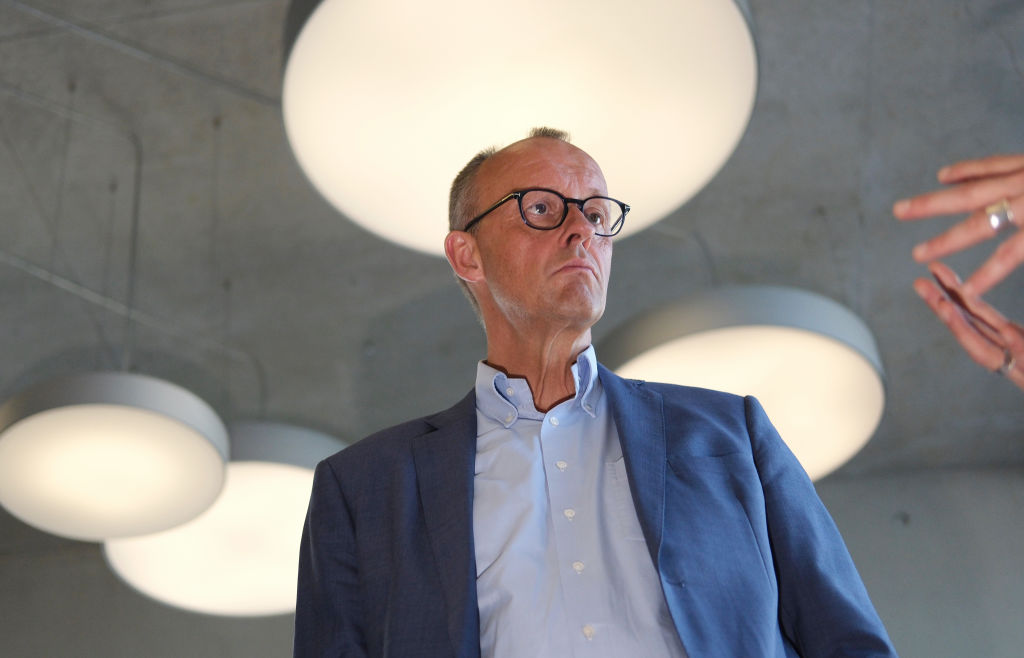Samarkand Summit sees EU deepen Central Asia strategic relations
Praising Central Asia’s geographic role as a global gateway, von der Leyen also announced major EU investments in the region.

Samarkand became the stage for what the European Union calls “a new chapter” in its strategic relationship with Central Asia.
The message was conveyed by European Commission President Ursula von der Leyen and European Council President António Costa, who were part of the first-ever EU-Central Asia Summit held in Uzbekistan.
Strategic shift
Launching a strategic partnership with Central Asia that will foster growth, connectivity, and shared prosperity for generations to come, von der Leyen outlined four main areas of collaboration: transport, raw materials, clean energy, and digital connectivity.
Praising Central Asia’s geographic role as a global gateway, she also announced major EU investments in the region.
On top of the €10 billion cash injection pledged last year into the Trans-Caspian Transport Corridor (TITR) to enhance trade and reduce travel time, von der Leyen announced a €12 billion Global Gateway Investment Package, as proof of the EU’s commitment.
Protecting multilateralism
Costa highlighted security as a top priority, as threats are increasingly transnational. He praised existing EU-Central Asia collaborations on border control, drug prevention, and counterterrorism, welcoming a new dialogue on fighting violent extremism.
Addressing the growing danger of disinformation, Costa reaffirmed the EU’s support for building regional resilience. He condemned Russia’s war in Ukraine and urged continued international unity in supporting a just and lasting peace.
According to Costa, the summit exemplifies the power of trust-based regional cooperation in contributing to global stability. He reaffirmed the EU’s commitment to a robust, future-focused partnership with Central Asia.
More than resources
Both leaders emphasized people and values, underscoring Europe’s intent not just to extract resources but to help Central Asia develop local industries, ensuring added value stays in the region, in contrast to other global players “exploiting” the region.
Von der Leyen and Costa highlighted that the EU also supports climate action through major projects that can help these countries fulfil their potential to become hubs for renewable energy.
Despite recent progress under frameworks such as the EU Strategy for Central Asia, the partnership still has untapped potential, and collaboration can be expanded to areas like digital technology and connectivity.
Tokayev met von der Leyen, Costa
On the sidelines of the summit, von der Leyen and Costa held separate meetings with the region’s presidents, including Kazakhstan’s Kassym-Jomart Tokayev, whose country is seeking stronger trade ties with individual member states as well as at the EU-level.
With von der Leyen, Tokayev discussed the possibilities to expand collaboration in areas such as economy, digitalisation, and innovation, as the Enhanced Partnership and Cooperation Agreement remains the backbone of the Kazakh-Eu engagement.
Meanwhile with Costa, Tokayev spoke of ways to deepen and broaden the strategic cooperation across various sectors of the economy. They emphasised the importance of the dynamic development of the partnership, based on mutual trust and interests.
The EU is Kazakhstan’s largest trading partner and foreign investor, contributing over 40 per cent of the country’s total foreign direct investment (FDI). Last year, trade between the parties reached almost $50 billion.
According to Tokayev, there are at least four other areas where Kazakhstan has the potential to deepen its cooperation with Europe, including energy, infrastructure, digital innovation, and artificial intelligence.
Investing in the future
Amid geopolitical fragmentation, shifting power blocs, and the erosion of multilateral norms, European leaders recognised Central Asia as a region that offers a different model: sovereign, ambitious, and open to cooperation.
With the Samarkand Summit, the EU has established a clear political message – it does not treat Central Asian nations as passive transit points or resource zones but as active partners in shaping a more stable and cooperative world order.
The EU is not just engaging Central Asia – it is betting on it.
[Edited By Brian Maguire | Euractiv’s Advocacy Lab ]









